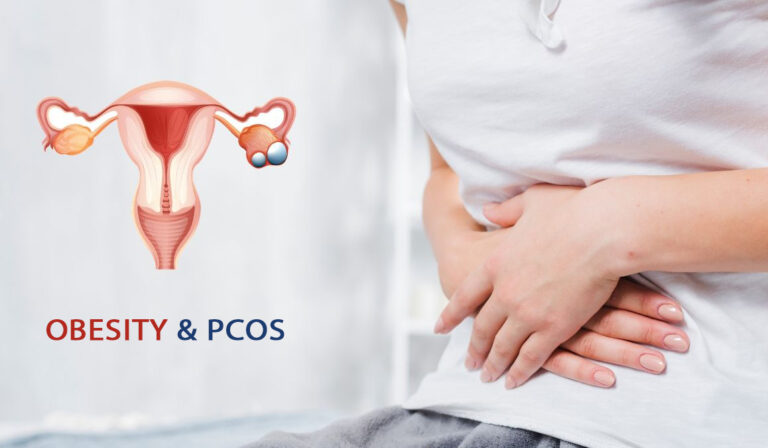
Obesity and PCOS (polycystic ovary syndrome) - Aastha Bariatrics
Medically reviewed by Dr. Manish Motwani, Bariatric & Metabolic Laparoscopic Bariatric Surgeon — Curated by Asmita Jaiswal
Table of Contents
Obesity is a chronic condition that impairs all the other functions of the body. It may seem like some extra pounds, but all the extra fats are capable of working like a gland in itself. The adipose mass (fat mass) has several hormones produced. These hormones can control your hunger, appetite, moods, and behavior. Along with this, fat mass can alter your physiology. Fat interacts and changes the regular mechanism in your body.
Impairment in Blood sugar levels, blood pressure, and hormonal mechanisms occur. Thus, diseases like diabetes, arthritis, and hypertension start crawling up. These diseases are some of the lifestyle diseases that worsen with time. Due to obesity, such chronic conditions are difficult to manage. Furthermore, fats affect the reproductive system of your body. The excessive fat mass interferes with the menstrual cycle in females. Obesity impacts men as well, we can see infertility and difficulty to conceive. Polycystic ovarian syndrome, Erectile dysfunction, are issues seen in obese/overweight individuals.
The parameters to know if you are obese are not?
- BMI (body mass index)
BMI range | Weight Status |
18.5-23 | Normal weight |
23-27.5 | Overweight |
≥ 27.5 | Obese |
27- 29.5 | Grade 1 obesity |
30- 34.5 | Grade 2 obesity |
35- 39.5 | Grade 3 obesity |
Above 40 | Morbid obesity |
- WHR (waist-hip ratio)
WHR | Normal Range |
For Women | 0.8 |
For Men | 0.9 |
- WC (waist circumference)
Waise circumference | Normal Range |
For Women | More or equal to 80 cm |
For Men | More or equal to 90 cm |
Dysmenorrhea, acne, and miscarriages like fertility issues are noticed in higher BMI women. Androgen levels are excess in obese women. This proves that excess fat mass cause endocrine dysfunction. Hormonal imbalances, PCOD, and insulin resistance.
These are some of the indicators of the damage obesity can do. The menstrual cycle in obese women is seen to be disrupted. Due to a rise in estrogen levels, stimulating several complications unwanted hair growth, irregular cycle, and acne. Hyperandrogenism (high levels of androgen) in obese females cause hirsutism. We can also notice upper body obesity. Thus, a relation between obesity and PCOS is seen.
Obesity can be prevented by consuming balanced calories. A poor lifestyle contributes to weight gain and addictions. Not indulging in unhealthy food habits, substance abuse, and lack of exercise contribute to one being obese. Prevention can be done by changing habits, avoiding intoxication, and having proper sleep. Even Unnecessary medications cause hormonal imbalance leading to irregular cycles.
Medically reviewed by Dr. Manish Motwani, Bariatric & Metabolic Laparoscopic Bariatric Surgeon — Curated by Asmita Jaiswal






